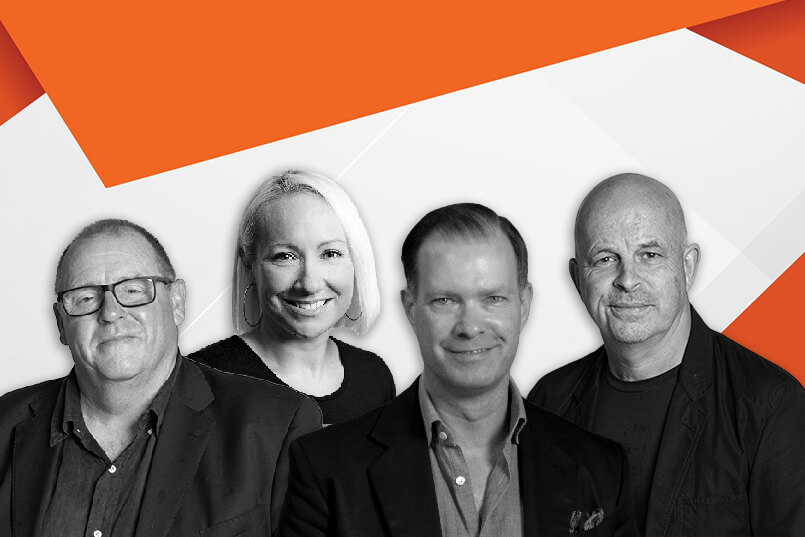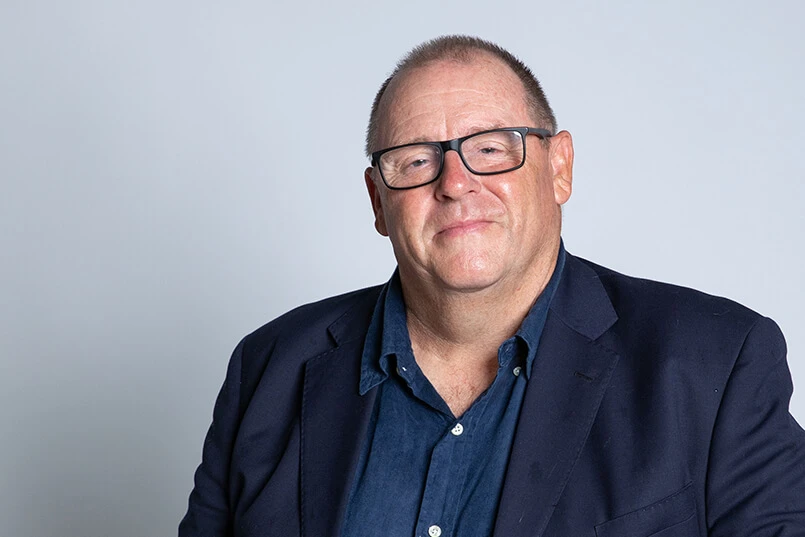The most common creative agency tender processes are typically based on a speculative creative pitch. Up until 2007 the pitches run by TrinityP3 were also based on the speculative creative pitch, even though it was clear the process was flawed.
The speculative creative work was rarely used; it was incredibly time and resource consuming and relatively insubstantial in assisting in the selection process.
Around this time I went overseas to find world-best practice for the various services TrinityP3 was offering at the time – production cost assessments, agency remuneration benchmarking and pitch management. It was this last one that led me to a consultancy in Amsterdam called Scan International and its principal Hein Brecht.
Hein shared with me his approach of organising full day workshops between the advertiser and the short listed creative agencies. It was a process that made sense and so we developed his methodology further and started recommending it to our clients in 2008.
The different approaches
The speculative creative pitch involved selecting a number of agencies – reported as up to six or more – providing them with a creative brief and time to develop creative concepts in response to that brief, and then having them present their recommendations.
The strategic workshop relies on a filtering process to reduce a long list of suitable agencies down to a shortlist of three or four. This filtering process is based on assessing the agencies capabilities and the chemistry the agencies have with the marketers.
Once you have the short list of preferred agencies, we then brief the agencies on a strategic problem or opportunity. The marketing team then works with each agency during a one-day workshop.
The time commitment
One of the issues that arose when we first suggested this approach back in 2008, was that several marketers were concerned that spending a day with three agencies was excessively time consuming.
But in actual fact the time commitment for both the advertiser and the agency is similar for the speculative creative process as it is with the strategic workshops.
Table 1: Time commitment by advertiser
| Speculative Creative (5 agencies) |
Strategic Workshop (3 agencies) |
|
| Briefing session | 1 hour x 5 agencies = 5 hours | 1 hour x 3 agencies = 3 hours |
| Question & Answer | 1 hour x 5 agencies = 5 hours | Not required as covered in the workshop |
| Tissue Sessions | 1 hour x 5 agencies = 5 hours | Not required |
| Workshop | Not required | 7 hours x 3 agencies = 21 hours |
| Presentation | 2 hours x 5 agencies = 10 hours | Not required |
| Total Hours | 25 hours | 24 hours |
The other benefit of the strategic workshop process is the fact it takes less days, meaning the selection process becomes less protracted. This is because with the speculative creative process the agencies need a minimum of four weeks to develop the creative concept and the presentation.
While the strategic workshop works best when the workshop takes place within a week of the brief.
Table 2: The process timeline
| Speculative Creative | Strategic Workshop | |
| Briefing session | Week One | Week One |
| Question & Answer | Week Two | |
| Workshop | Week Two | |
| Concept Development | Week Three | |
| Tissue Sessions | Week Four | |
| Presentation Preparation | Week Five | |
| Presentation | Week Six |
So the process is clearly more time efficient. But it is also more effective.
The benefits for advertisers
Over the past nine years we have observed and had reported the following benefits of the Strategic Workshop approach over the traditional Speculative Creative process including:
- The workshop format provides as close to ‘real world’ circumstances, providing marketers with an opportunity to test drive the agency in the workshop and providing better insights into how the agency work and how the marketing team and the agency team work together.
- The all-day format means that it is unlikely the agency or the advertiser will be able to maintain their ‘presentation’ persona. Therefore it provides a better understanding of the agency culture and cultural fit of the two groups leading to better understanding of chemistry.
- It allows the marketing team to see how and who in the agency drive the process and insights (often marketers can be left wondering who worked on the idea as in the traditional creative pitch process this is hidden). Rather than just seeing the Pitch A Team, the workshop allows the marketers to see the real agency talent they should be working with.
- The workshop needs to be managed so that it creates a more realistic environment for assessing and evaluating the agency, compared to the quite artificial way the speculative creative pitch is run. We have noted that agencies that are excellent at the creative presentations do not always perform as well in the workshop. This is usually because they are unable to sustain the performance for a full day.
- While three one-day workshops often seems intimidating, the marketers get to work with three agencies on a problem or project that is important to them and almost always comment on how informative and valuable the experience is.
- One of the big criticisms of the Speculative Creative Pitch is that the work presented is rarely used after the agency is appointed. This is because the agencies are working in isolation from the marketers. Often this is to maintain the integrity of the tender. But the workshop means that often the strategy and the concepts are more suitable due to the fact they are effectively co-created as will be the case when appointed.
- The collective nature of the workshops lends itself to being more inclusive of key stakeholders within the organisation compared to the Speculative Creative Pitch, where a core decision-making team is preferred. At a time when marketers need to be more collaborative with their colleagues, the workshop is an ideal way to include them in the agency selection process.
- Finally, marketers report being able to make more informed decisions on agency best fit rather then being distracted by the agency that comes in with a one-off good creative idea.
“I’ve been involved in selecting agency partners for over twenty years and I have been extremely impressed with the knowledge, professionalism and integrity demonstrated by TrinityP3 during our recent pitch. They guided us through a rigorous, holistic process and proved to be an invaluable source of advice to my team and myself. TrinityP3 has delivered a great return on investment to Monash University.”
Margot Burke, CMO at Monash University
Read more marketer and advertiser testimonials here.
The benefits for agencies
The Workshops also have benefits for Agencies too, many of which are the same benefits the Marketers and Advertisers report including:
- One of the difficulties for agencies is that with the Speculative Creative Pitch they are often kept at arms-length from the advertiser. The Workshop format provides the agency with better insights into the marketing team and how they would work together.
- Agencies also don’t like the very artificial and contrived nature of the traditional Speculative Creative Pitch. But the feedback from the agencies is they prefer the workshop format as it creates a more realistic working environment.
- Rather than working in isolation and having to try and second guess the marketing team, the agencies prefer the Workshop process as the interactive, co-creation nature means they can focus on creating the solution with the client and increasingly the strategy and the concepts are more likely to be used as they have effectively been co-created.
- Just as the Workshop allows the marketing team to see how and who in the agency drive the process and insights, it allows the agency to better understand who on the marketing team is driving strategy, brand and insights on the advertiser team, allowing them to better align their team to the marketing team.
- Finally, agencies like the workshops as the process is more efficient, allows agencies the best chance to demonstrate their skills and is more focused on the outcome.
“Sometimes pitches can be a bit of slog, but the team has really enjoyed working on both briefs and the workshop is a great idea to see if our chemistry works well and to test our responsiveness to issues that clients often face – The team thought it was great, may go as far as to say the whole afternoon was the ‘bees knees’!”
Gareth Mulryan – Chief Executive Officer, ZenithOptimedia Southeast Asia
& Managing Partner, Performics APAC
Read more agency testimonials here.
The final analysis
The irony is that while the Strategic Workshop process has proven again and again to be a more efficient and effective way of selecting creative agencies, the industry appears to be addicted to the flawed process of the Speculative Creative Pitch.
If you are thinking of undertaking a pitch process, then consider the process. Just because the Speculative Creative process has been the usual process of the past, there is now a proven process that is clearly better.
Our comprehensive Search & Selection process provides extensive market knowledge, tightly defined process and detailed evaluation and assessment, to help you find the right agency supplier.
Why do you need this service? Click here to learn more





One thought on “Why strategy workshops beat speculative creative pitches for agency selection every time”
An excellent approach – thank you!
Comments are closed.